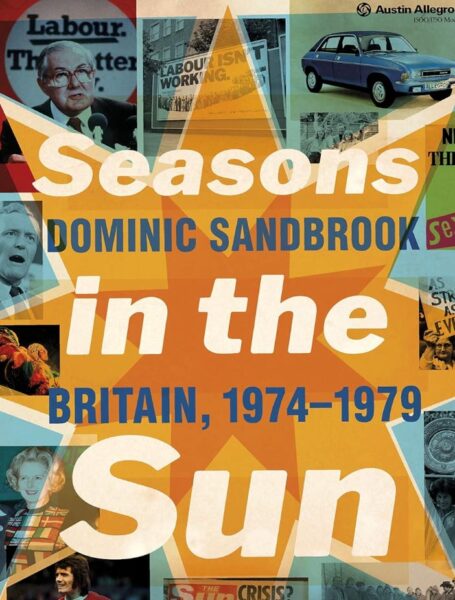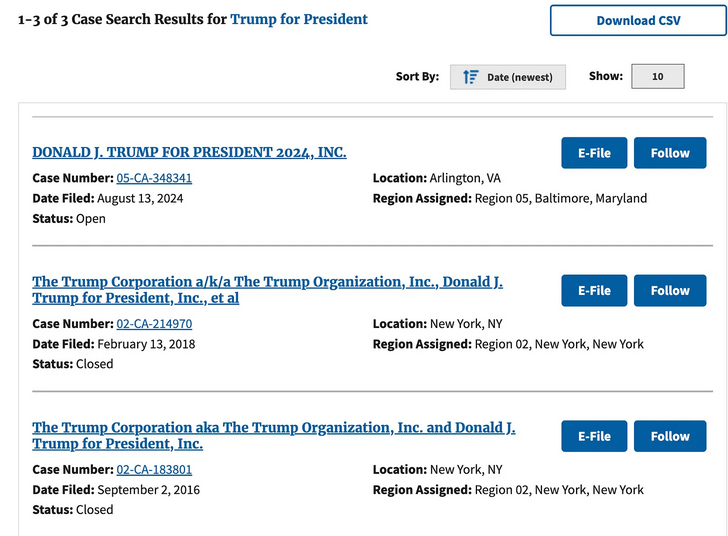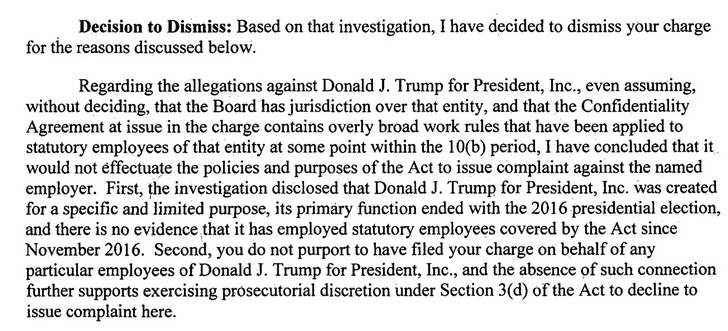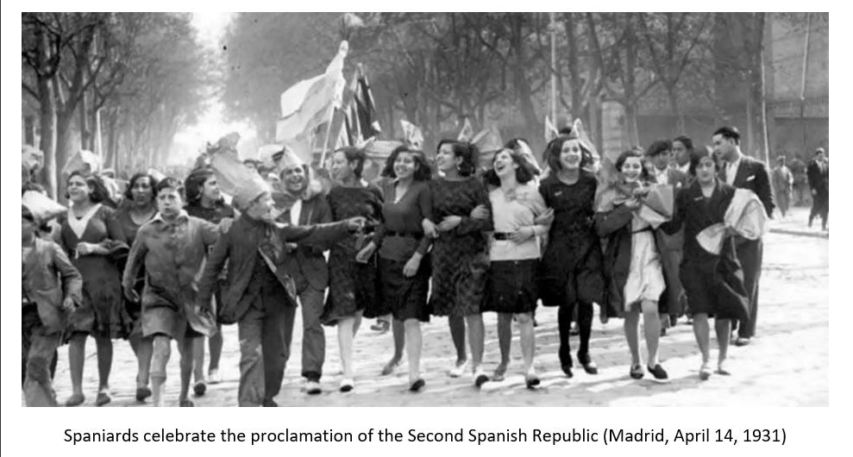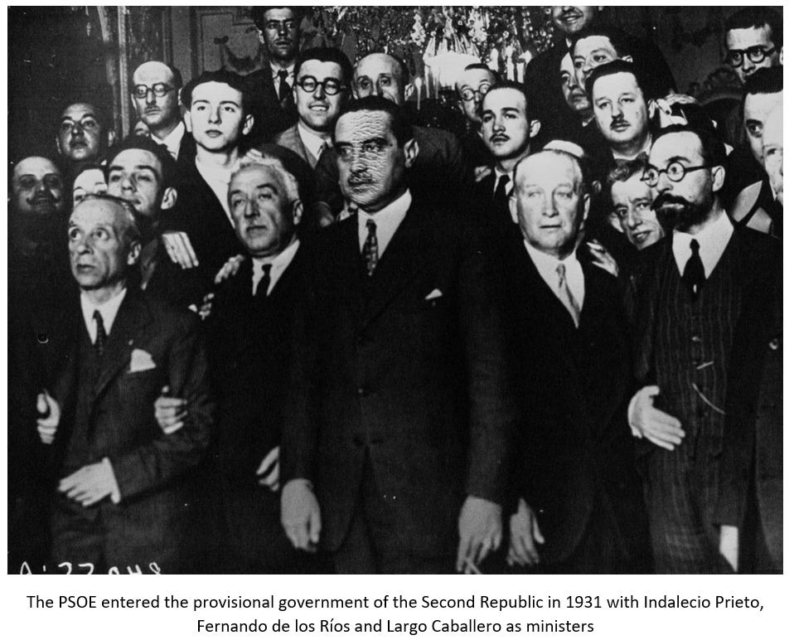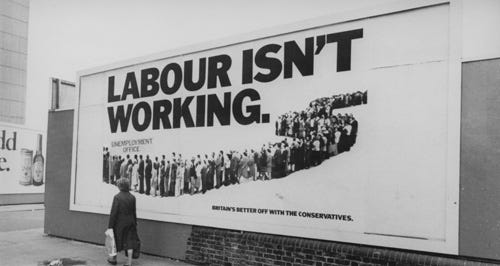World War Two
Published 27 Mar 2025January 1931 starts with violence, economic collapse, and Nazi upheaval in Germany. Hitler secretly meets with army chief Kurt von Hammerstein-Equord, while Ernst Röhm returns to take command of the Nazi paramilitary SA. As hundreds of thousands of miners face mass layoffs and brutal crackdowns, the republic’s future hangs in the balance — how long can democracy hold on?
(more…)
March 28, 2025
The Man Hitler Needs for Civil War, Ernst Röhm, Returns!
March 17, 2025
QotD: Myths from Norman Rockwell’s America
I’ve seen complaints on X that a factory worker’s single income used to be enough to raise a family on but isn’t anymore. It’s true; I grew up in those days.
The complaint generally continues that we were robbed of this by bad policy choices. But that is at best only half true.
World War II smashed almost the entire industrial capacity of the world outside the U.S., which exited with its manufacturing plant not only intact, but greatly improved by wartime capitalization. The result was that for about 30 years, the US was a price-taker in international markets. Nobody could effectively compete with us at heavy or even light manufacturing.
The profits from that advantage built Norman Rockwell’s America — lots of prosperous small towns built around factories and mills. Labor unions could bid up salaries for semi-skilled workers to historically ridiculous levels on that tide.
But it couldn’t last. Germany and Japan and England recapitalized and rebuilt themselves. The Asian tigers began to be a thing. U.S. producers facing increasing competitive pressure discovered that they had become bloated and inefficient in the years when the penalty for that mistake was minimal.
Were there bad policy choices? Absolutely. Taxes and entitlement spending exploded because all that surplus was sloshing around ready to be captured; the latter has proven politically almost impossible to undo.
When our windfall finally ended in the early 1970s, Americans were left with habits and expectations formed by the long boom. We’ve since spent 50 years trying, with occasional but only transient successes, to recreate those conditions. The technology boom of 1980 to 2001 came closest.
But the harsh reality is that we are never likely to have that kind of advantage again. Technology and capital are now too mobile for that.
Political choices have to be made within this reality. It’s one that neither popular nor elite perception has really caught up with.
Eric S. Raymond, X (the social media platform formerly known as Twitter, 2024-07-08.
December 12, 2024
The Canada Post strike is achieving one thing … strangling the use of cheques
In The Line, Phil A. McBride outlines the one palpable achievement of the postal workers’ strike in the likely fatal blow to the use of paper cheques in Canada:
For more than a century, Canadian businesses have been using cheques and the post office to send and receive money across the country and the world. It’s easy: you write a cheque, you put it in the mail, the recipient deposits the cheque at their bank, you wait five business days for it to clear and voila — you’ve got the money.
Except, right now, of course, that’s not happening, due to the ongoing postal strike. In fact, a great number of cheques that are in the mail are stuck there, leaving businesses and Canadians with money stranded in transit. I am increasingly convinced that this strike will be remembered in the future as the death of cheques in Canada, at least as a major medium of business exchange.
The banks won’t miss cheques, if so. Cheques are expensive. In 2015, Scotiabank estimated that the writing and processing of a cheque cost anywhere between $9 and $25. In 2023, approximately 379 million cheques were issued for a combined value of $2.9 trillion dollars. That’s an average value of $7,650.00 per cheque, at an averaged cost of $6.44 billion dollars to the banks and their customers. Very little of that cost is incurred if a payment is made electronically.
But it’s not just the money. Cheques are prone to fraud. Cheques can be counterfeited, signatures can be forged and cheques can be written against accounts that can’t cover the amount they’re issued for. The customer is responsible for sending and receiving them, which means they are prone to loss or interception, which adds further time and cost to an already expensive process.
As a business owner, I happen to agree with the banks: I don’t like cheques. I’m made to wait five business days to access my money, and that’s after I’ve waited for the client to issue the cheque and for the postal service to (once upon a time) deliver it to my office.
Today, all of Canada’s charter banks, as well as most Credit Unions, offer many options for electronic payment. Electronic Funds Transfer (EFT), Interac Electronic Money Transfer (EMT), debit cards, credit cards, even SWIFT wire transfers for international payment. All of these institutions have the ability allow for multiple layers of approval that satisfy corporate accounting, security and reporting requirements. All of these forms of payment are faster, cheaper and more secure than cheques — in most cases, I get access to my money inside 24 hours, rather than waiting for a full week for a cheque to clear.
So why has the cheque endured as long as it has?
Some combination of “If it ain’t broke, don’t fix it” and “It’s always been done this way”.
August 27, 2024
Was 1974 the worst year in British politics or just the worst year so far?
I wasn’t in the UK in 1974 (although I did spend a couple of dystopian weeks there in January 1979), so I don’t know from personal experience just how bad things were, but as Ed West considers Dominic Sandbrook’s very informative social history Seasons in the Sun, he certainly helps make a strong case for it:
One of my favourite moments from reading Fever Pitch as a teenager was the passage where Nick Hornby and a friend bunk off school to watch Arsenal play West Ham, a game which was being held on a weekday afternoon because there wasn’t enough electricity for the floodlights. Britain was enduring a three-day week due to the energy crisis, and assuming the ground would be empty, Hornby is stunned to find it packed with 60,000 people, all skiving off work, and he recalls his hypocritical juvenile disgust at the idleness of the British public.
The scene encapsulates the comic crapness of that period, one that many of us have enjoyed laughing at with the recent Rest is History series on 1974. I began reading Sandbrook’s book Seasons in the Sun afterwards, from where the material for the series was drawn; the early chapters comprise a highly entertaining account of what he described on the podcast as “the worst year in British politics”. Reassuring, perhaps, for those of us inclined towards pessimism, although to paraphrase Homer Simpson, perhaps it was only the worst year so far.
Nineteen-seventy-four saw two elections, the first of which ended in a hung parliament, with Labour as the largest party, and the second with Harold Wilson winning with a majority of 3. These were fought between parties led by exhausted leaders who had run out of ideas, with a third, the Liberals headed by Jeremy Thorpe, soon to be notorious as a dog killer. Britain had declined from the richest country on the continent to one of the poorest in western Europe, and its economy seemed to be falling apart.
During his troubled four years in office Edward Heath had called a state of emergency several times, culminating in ration cards for petrol and power restrictions. In 1973 Heath had “told his Chancellor, Anthony Barber, to go for broke”, Sandbrook writes: “It was one of the greatest economic gambles in modern history: while credit soared and the money supply boomed, Heath hoped to keep inflation down through an elaborate system of wage and price controls”. By October that year, “his hopes were unravelling at terrifying speed”.
The “Barber boom” led to “house prices surging by 25 per cent in just six months, the cost of imports rocketing and Britain’s trade balance plunging deep into the red”. Yet just a week after Heath had published details of his “Stage Three” incomes policy, “the Arab oil exporters in the OPEC cartel announced a stunning 70 per cent increase in the posted price of oil, punishing the West for its support for Israel. It was a devastating blow to the world economy, but nowhere was its impact greater than in Britain.”
The stock market lost a quarter of its value in just a month, while by January 1974 share prices had fallen by almost half in under two years. Just before Christmas, the government cut spending by 4 per cent, and Labour’s Shadow Chancellor, Denis Healey, “warned his colleagues that Britain stood on the brink of an ‘economic holocaust'”. Nine out of ten people told a Harris poll that “things are going very badly for Britain” and nearly as many foresaw no improvement in the coming year. They turned out to be correct.
Amid trouble with the National Union of Mineworkers, in November 1973 “Heath announced his fifth state of emergency in barely four years. Floodlighting and electric advertising were banned; behind the scenes, the government began printing petrol ration cards. As the railwaymen voted to join the miners in pursuit of higher pay, it seemed that Britain was sliding into darkness. Offices were ordered to turn down their thermostats, while the BBC and ITV were banned from broadcasting after 10.30 at night. On New Year’s Day, with fuel supplies running dangerously low, the entire nation went on a three-day working week.” Happy days.
August 16, 2024
After the Trump livestream, Elon Musk’s been “charged with coercive chuckling, a legal first”
Chris Bray has been following the legal sideshow of the United Auto Workers union filing charges with the US National Labour Relations Board (NLRB), alleging that Trump and Musk made threats against organized labour during the recent livestreamed event:
The UAW complaints against Tesla and Trump for President 2024 have been listed on the NLRB website. They really did it, and I got it wrong. The delay in listing the complaints, and the lunacy of the charges, led me to the wrong conclusion. The complaints are real: there are forms with vague and obviously ridiculous complaints on them, and they filed the things.
But they’re still functionally fake, and they’ll die quickly. Anti-Trump organizations have been doing this for years, without success; this is the third complaint filed with the NLRB against Trump campaign organizations.
In the first of those previous cases, the NLRB raised the obvious question about jurisdiction, expressing doubt (“without deciding”) that they can police presidential campaigns using labor law:
The NLRB has previously declined to pursue labor complaints against Trump for President, and the UAW has filed a labor complaint against Trump for President. We can make educated guesses about what happens next. I’ve emailed professors who teach labor law to ask them if the National Labor Relations Act governs the political speech of presidential candidates, but they haven’t responded.
As for the complaint against Tesla, Elon Musk had a livestreamed discussion with Donald Trump in which Trump said that striking workers should be fired; Musk laughed, but didn’t say anything in response. This news report includes audio of that exchange. The complaint alleges that Musk therefore made coercive statements
July 21, 2024
LCBO strike reportedly settled
A tentative deal was announced on Friday afternoon, then un-announced after the LCBO claimed the union had added financial demands to the return-to-work conditions after the contract itself had been agreed, and then on Saturday, re-announced. If the deal is ratified by the union, LCBO stores across Ontario should re-open on Tuesday.
It was the first LCBO strike in Ontario history, and it’s open to debate whether the union members will get all that much for their two-week unpaid break. The National Post‘s Chris Selley thinks not, calling it the “Stupidest. Strike. Ever.”

“LCBO at Parkway Mall” by Xander Wu is licensed under CC BY-SA 4.0 .
A week into the strike, a scant 15 per cent of Ontarians told Leger marketing that shuttered LCBO outlets had “affected (them) personally”. Only 29 per cent said they felt the government should legislate or arbitrate LCBO workers back into stores as soon as possible. Eleven per cent said they didn’t even know the strike was happening. And 32 per cent said they had explored “alternative locations” to buy booze, of which there are nowadays myriad.
Many more explored those opportunities in week two of the strike, I suspect, as fridges and wine racks were depleted. That’s potentially bad news for the LCBO’s future retail market share. But you didn’t even need an alternative to the LCBO: With a few days’ planning you could get all your regular brands delivered for free. Delivery and wholesale options were running as normal. Restaurants and supermarkets supplied by the LCBO were still supplied, and though there were reports of empty shelves at some supermarkets, that wasn’t truer than normal at the one I visit.
[…]
So this all looks like a terrible miscalculation by union leadership on behalf of its members — both a fundamental misreading of who had leverage, and a bizarre tactical choice to make the strike first and foremost about expanding the sale of ready-to-drink cocktails and seltzers (RTDs) to supermarkets and convenience stores.
Not wages; not benefits; not the number of full-time positions — things people can at least relate to — but where you can and cannot buy a White Claw or a Caesar in a can. Did they really think people would care?
Near as I can tell, it was an attempt to make this about the LCBO’s retail future: RTDs are a big and growing slice of the alcohol market in Ontario, only accessible (before the strike) at the LCBO. OPSEU wanted us to believe that by allowing supermarkets to sell them, Ontario would make no profit on them. And that’s their baked-in advantage: An incredible number of Ontarians, including far too many journalists, cannot wrap their minds around the notion of the government taking its cut at wholesale rather than retail.
Still, this gambit clearly fell flat.
Update: Fixed broken link to NP.
July 7, 2024
Ontario’s LCBO strike may be both justified and counterproductive
Ontario’s main importer and distributor of wine, beer, and spirits is now facing its very first actual strike, as the negotiators couldn’t come to an agreement by the strike deadline on Friday morning. On the face of the dispute, the union certainly has some solid grounds for the strike, as pay hasn’t been keeping pace with (official) inflation and far too many of the LCBO’s workforce are on work schedules that keep them from earning full-time wages. On the other hand, over the last decade or so, both Liberal and Progressive Conservative provincial governments have been making piecemeal changes to the market so that the LCBO is far from the only place Ontario drinkers can purchase their preferred booze. Just off the top of my head, here are some of the alternative options now available to Ontario consumers:

“LCBO at Parkway Mall” by Xander Wu is licensed under CC BY-SA 4.0 .
- The Beer Store, Ontario’s other (foreign-owned) booze oligopoly for beer and cider is still operating normally at all their retail locations and agency stores. They also have online ordering for delivery available to ordinary consumers.
- The LCBO is still offering online sales — not same-day, but free delivery.
- Ontario’s vast array of craft brewers are still able to sell individual cans or bottles of beer from their bottle shops or storefront locations (pre-packaged 6-, 12-, 24-container or other types are still limited to the Beer Store oligopoly, of course).
- Ontario’s wineries are similarly still operating normally for retail sales at the winery or (for a few older wineries who still have grandfathered privileges from earlier licensing regimes) stand-alone retail stores.
- Ontario’s much smaller — but growing — number of distilleries are also operating normally and are able to sell their locally produced whiskey, gin, vodka, etc. from their tasting rooms/bottle shops.
- Many, many grocery stores in the province now sell wine, beer, or both, and are all operating normally. They may be slower to replenish the shelves as the LCBO’s limited number of non-union staff will be handling re-supply.
In addition, if the strike continues for more than two weeks, the LCBO will open a select number of their stores for limited hours across the province (again, limited by the number of non-unionized staff available to operate the stores). With all of this (and I’m sure I’m missing some options in my list), consumers may begin to draw the conclusion that the LCBO isn’t as essential as it once was:
On Thursday evening, Colleen MacLeod, chair of the team bargaining on behalf of government liquor-store employees, declared the summer of 2024 utterly ruined.
“Tonight, (Premier Doug) Ford’s dry summer begins,” said MacLeod, of the Ontario Public Service Employees Union (OPSEU), hours before the first ever strike in the Liquor Control Board of Ontario’s (LCBO) history became official.
Desperate? Delusional? That’s up for debate. OPSEU’s press release announcing the strike suggests “delusional.” At one point it claims the LCBO is “Ontario’s best-kept secret.”
What could that possibly mean?
The release then quotes OPSEU president J.P. Hornick as follows: “We told Ford not to ruin everybody’s summer, but now he’s closed the Science Centre and forced a dry summer for Ontarians by refusing to offer a deal that would be good for LCBO workers and Ontario.”
The Ontario Science Centre is a tired old children’s destination in North Toronto that has been neglected in every way by consecutive provincial governments. I’m quite sure few people in Ottawa, Windsor or Thunder Bay have ever even heard of it. Mashing it together with the LCBO, just because OPSEU represents employees at both, suggests the union really doesn’t understand the fight it’s getting into.
If the Ford government is willing to dig in its heels and fight — which isn’t something it’s particularly known for — this could be a great win for the Ontario consumer.
It’s not 1990. The LCBO shutting the doors to its retail stores is really only a minor pain in the rear end, thanks to years of piecemeal, needlessly complex and and too-slow but nevertheless significant liberalization that really kicked into gear under former Liberal premier Kathleen Wynne. (Ford is often mocked for being obsessed with alcohol, but Wynne was nearly beyond parody. If her government woke up in a crisis Monday morning, it was safe to say she’d find herself announcing more beer and wine in supermarkets by Thursday afternoon.)
Anecdotally, as I was in on Thursday picking up a small selection of wine and beer, I overheard a conversation with one of the staffers and another customer where the staffer didn’t believe there’d actually be a strike and that the only result of the brinksmanship at the bargaining table would be that they would have to do more re-stocking next week after the (understandably) higher sales during the past week.
February 4, 2024
January 30, 2024
York University’s CUPE local apparently cribs their homework from the Völkischer Beobachter
York University’s contract and part-time instructors are represented by CUPE local 3903, who’ve distributed an eye-openingly anti-semitic document with the (implied) order to interrupt normal tutorials and replace the content with Palestinian propaganda:

Detail from an official “toolkit” distributed to York University contract and part-time faculty which claims that their employer is complicit in “genocide” by the mere tolerance of Jewish groups on campus.
Photo by A Toolkit on Teaching Palestine
A new toolkit circulated to York University teaching assistants instructs them to denounce Israel at every available opportunity, even when it has no apparent relevance to the subject being studied.
“Let us collectively divert this week’s tutorials to teaching on Palestinian liberation,” reads the 15-page document circulated by CUPE 3903, the union representing York’s contract and part-time faculty.
The document adds that tutorials should be diverted to condemnations of the “Zionist Israeli state” regardless of the course that the TA is supposed to be discussing.
“It is a medical issue. An arts issue. A feminist issue. A society issue. A political issue. A cultural issue. A geography issue. An engineering issue. An architecture issue,” it reads.
The document is filled with claims denouncing Israel as a genocidal “colonial project”. Canada is treated much the same, and is referred to alternately as the “Canadian settler state” or “Turtle Island”.
The mere presence of Jewish groups on campus is also referred to as evidence of York University’s “complicity” in genocide.
The document denounces the existence of sanctioned “Zionist cultural institutions”, making explicit reference to Hillel, the world’s go-to Jewish campus organization. York is also called an accessory to genocide because of its research links with the Hebrew University of Jerusalem.
The pamphlet even provides a script for TAs to read as they inform students that the tutorial will be cancelled in favour of becoming a “teach-in … for liberation.”
“Today, I open up our classroom to bring our attention on Gaza, to speak up and stand in solidarity with the Palestinian liberation movement, and contribute in ending Canada’s and York’s complicity with genocide and the settler-colonial occupation of Palestinian land and life,” reads one introductory line.
September 10, 2023
Time for NFL running backs to set up their own union?
It’s been known for a few years, but has been brought into clear focus during this NFL offseason that the position of running back — historically one of the most important positions on the field after the quarterback — has been steadily devalued by NFL teams. Superbowl-hopeful teams no longer centre their game plan around a workhorse running back, with more and more plays being passes to wide receivers and tight ends rather than running the ball. During the 2023 offseason, several big-name running backs went public with their frustrations over new contracts. The NFL Players Association, the union for players to negotiate with the NFL’s owners, has not been as proactive for running back concerns so a break-away RB union is back under discussion:
… running backs — whose job includes receiving handoffs from the quarterback, catching passes, and blocking — are getting pummeled like never before by bigger, stronger, faster NFL players. Which means that when their contracts are up, running backs are more damaged than they used to be.
What’s more, the drama has shifted: running backs used to score a lot, but now the action revolves around quarterbacks and wide receivers.
That explains why team owners are increasingly hiring rookies to be their running backs and, instead of investing in them long-term, replacing those rookies with other rookies at the end of their first contract.
So, running backs — having suffered tons of concussions, ankle sprains, and other injuries — never see the big, second-contract payday other NFL players land. Like the Kansas City Chiefs’ quarterback Patrick Mahomes’ $450 million contract or the $120 million deal wide receiver Tyreek Hill signed with the Miami Dolphins.
All of which explains how Harris has become a leading advocate for a running-backs-only union — and the unlikely face of the new American labor movement.
“I agree with my running back brothers around the NFL — history will show that you need running backs to win — we set the tone every game and run through walls for our team,” Harris tweeted in July, after three of his fellow running backs failed to secure long-term deals with their teams.
The new union, which would be separate from the NFL Players Association, was first proposed in 2019, when the International Brotherhood of Professional Running Backs filed a petition with the National Labor Relations Board.
When Harris was asked in June what he thought of the idea, he said: “I’m open to it.”
He is joined by Tennessee Titans running back Derrick Henry, 29. Known as King Henry, he tweeted in July: “At this point, just take the RB position out the game then. The ones that want to be great & work as hard as they can to give their all to an organization, just seems like it don’t even matter. I’m with every RB that’s fighting to get what they deserve.”
Granted, professional running backs, with an average salary of $1.8 million, make a lot more than nurses, pilots, public school teachers, and everyone else in a union, but the money is declining, and they increasingly feel as though they’re being exploited by management at the same time the NFL is seeing record success. In 2023, the NFL secured $130 billion in new media deals. Of the top 100 network television broadcasts in the country last year, the league accounted for 82, and that figure is going up. On top of all that, game attendance is nearing an all-time high.
August 21, 2023
What the parades are for | Dorktown
Secret Base
Published 8 Aug 2023This is the second episode of our seven-part docuseries, The History Of The Minnesota Vikings.
For the Vikings, the 1970s were so full of comedy, drama, and doomed snowmobiling expeditions that we had to split this decade into two episodes. And we STILL had to leave stuff out! What a team.
(more…)
May 4, 2023
British civil servants apparently need to have training on BDSM theory and practice
In Spiked, Malcolm Clark outlines the proposal to be discussed at a civil service union conference next month:

“Cologne BDSM 07” by CSD2006 is licensed under CC BY-SA 3.0 .
For years, the LGBT lobby has wreaked havoc across the UK’s civil service. It has helped to turn the machinery of government into a crèche for the kind of people who can’t remember what pronouns they’re using that day. But this may have just been a taster of what’s to come. Kink, it seems, is the new frontier in identity politics. Get ready to meet the “BDSM” lobby.
Next month, at its annual conference, the biggest civil-service union, PCS, will discuss a motion calling on Whitehall to set up a network for staff who are into bondage, domination and sado-masochism (BDSM). I suppose there’s one thing to be said for this daft idea. The more time these jobsworths spend slapping each other around, the less time they’ll have to humiliate and torment members of the taxpaying public.
There are a few obvious problems with this proposed BDSM staff network. For one, its advocates have called for workplace training courses about BDSM. No, I’m not making this up. The suggested courses would explain that “mutual informed consent … is needed before erotic activity is carried out”. This is a statement of the obvious to most of us. Who says entry standards for the civil service are slipping?
You may have assumed that the priority of our civil service should be carrying out the business of government, rather than BDSM advocacy. Perhaps it should be getting on top of the fact that only three per cent of hospital trusts in England hit cancer waiting-time targets in 2022? Or the fact that 360,000 people had to wait more than 10 weeks for their passport last year?
One strange thing about this demand for training courses for kink-meisters is that it flies in the face of other recent staff demands. Across Whitehall, as in private industry, advocacy groups have long insisted that Britain’s workplaces have developed a toxic culture that does not respect sexual boundaries. Reams of new guidelines have been drawn up in response. Many of these guidelines consider asking questions about someone’s sex life to be, in itself, a form of sexual harassment. Yet now we could soon have staff networks based solely around people’s private sex lives. And what would a meeting of sexual fetishists discuss if not their sex lives? The weather?
Even twenty years ago, it was a common witticism to refer to workplace meetings as “beatings”, but this is a long way past a casual joke (that yes, is probably risky to make in most modern workplaces, as someone is bound to find offence).
While looking for an appropriate image to accompany this post, I was quickly reminded why most search engines now offer varying levels of “safe” viewing.
March 31, 2023
QotD: The education racket
… one of “capitalism’s” great ironies is that it creates several different breeding grounds for the ideology-addled idiot parasites that eventually destroy it. Politics is the most obvious example, but there are lots of others. The “education” business, for instance, is little more than make-work for idiots. You’ll never get rich as a teacher, of course, but a nice middle-class salary, great bennies, a nuclear-armed union, guaranteed lifetime employment, and fucking summers off is a very sweet gig indeed. The red tape and routines and meetings, endless meetings, are infuriating to anyone with more than two brain cells to rub together, but for a certain type of person — the kind of dull, vapid, lazily malicious person who would volunteer to be a Block Warden in the USSR — it’s heaven.
Indeed, it’s not going too far to say that these types of institutions are designed to chase off anyone brighter, more honest, or more hardworking than the average member. If you haven’t had any experience with teachers or school boards lately (you lucky bastards), think back to your last encounter with Human Resources, or your neighborhood’s Homeowners’ Association. The only person who can stand to work for HR or be part of the HOA is … well, is the kind of person who works in HR or is part of the HOA — dull, vapid, lazily malicious busybodies. They’re as lazy as they are dumb, as dumb as they are malicious. The key to dealing with them, like the Sovietologist’s key to predicting the Politburo, is figuring out which of their lovely personality traits is likely to come to the fore in a given situation.
Severian, “How Dumb Are Liberals?”, Rotten Chestnuts, 2020-07-31.
December 11, 2022
Winter of Discontent 2, non-electric boogaloo?
Matt Goodwin sets the stage for Britain’s potential re-run of the “Winter of Discontent”. By chance, I happened to be in England for a few weeks smack-dab in the middle of the worst of that winter, so although I was not following the news at the time, the physical and emotional state of the country struck me very deeply. There certainly are strong similarities between late 1970s Britain and post-pandemic Britain:
Britain is entering a Winter of Discontent. If you are in the country and plan to take a train, a bus, a flight, a driving test, travel on the highway, send a letter, have a beer, go to school or university, need an ambulance to take you to hospital, need a nurse to look after you while you are in hospital or want to buy a coffin in case things do not go so well while you are in hospital then there is more than a good chance you will be caught up in a wave of strikes that are sweeping across the country.
More than one million working days are about to be lost due to strike action, the largest number since 1989. This is nowhere near the twelve million days that were lost in the original Winter of Discontent, in 1978-9, or the 126 million days lost during the general strike in 1926. But it is more than enough to cause yet another problem for Rishi Sunak and the faltering Conservative Party he is struggling to turn around.
As I pointed out in the Sunday Times last week, while Sunak has stabilised his party it remains deeply unpopular in the country. Even before this winter, voters blame the Tories far more than global events for Britain’s deteriorating economy. One legacy of Partygate and the disastrous experiment with Trussonomics is that Sunak has inherited a party that is now seen by much of the electorate as untrustworthy, serving its own interests, in the hands of a narrow elite and out of touch. Today, not even one in ten voters think the Conservatives “care about ordinary people”.
What options does Sunak have? While he and his team will be tempted to recycle the Thatcher playbook from the original Winter of Discontent, blaming the unions for the strikes and trying to appeal to national unity, this time things are more complicated. For a start, large numbers of voters actually support the strikes, which reduces Sunak’s room for manoeuvre. Second, this time it is the Conservatives not Labour who are in power, and are being blamed just as much as the unions for the unfolding chaos. Every train that is missed, every flight that is cancelled, every hospital patient that is not looked after will entrench the party’s negative image. And, third, as I said during an after dinner talk to clients of a major law firm this week, irrespective of what happens in the weeks ahead research on the impact of major strikes tells a consistent story: they hurt incumbent governments, lowering their support at the next election.
In fact, this might explain why the Rishi recovery already appears to be running out of steam. As I pointed out on Twitter this week, since taking over Sunak has certainly managed to increase his party’s average share of the vote from 23 to 27 per cent while Labour’s average lead in the polls has dropped from thirty to twenty points. And when voters are asked who would make the “best prime minister”, Sunak is much closer to Starmer, trailing him by only 5-points, than Liz Truss ever was, who trailed him by 29-points. But the Conservatives remain a long, long way behind. Just how far behind was underlined by a by-election in Chester this week which saw the party’s vote crash by sixteen points. The last time this happened at a by-election in a Labour-held seat was in the 1990s, shortly before the Blair asteroid almost rendered the Tories extinct.
At a deeper level, however, this winter also looks set to entrench a much deeper mood among the British people which will also undermine the government. The strikes, the chaos, the mounting sense of crisis are all feeding a palpable feeling among voters that nothing really works in Britain anymore, that contrary to the populist mantra of the last decade nobody is in control.
November 4, 2022
Ontario parents brace for yet more school disruption as CUPE threatens a Friday walkout
Matt Gurney, writing in Toronto Life, recounts a fairly typical Ontario parent’s concerns at the latest stand-off between the Ontario government and the non-teaching educational workers represented by the Canadian Union of Public Employees (CUPE):
It’s one thing to watch the news as a journalist and wonder how to cover it. Over the last week or so, though, I’ve just been another parent wondering if my young kids are going to be out of school for an extended period. Again.
It’s all very familiar by now, of course. Can I shuffle my deadlines? Should we get rotating playdates going with neighbours so we can have some quiet in the house when we have an important Zoom call? Do we still have the number of that tutor we used during Covid, and should we call her again if this drags on? Anyway, there’s always the grandparents, right?
This is stress we don’t need — a kick in an already tender spot. I remind myself that, all things considered, others have it way worse: people on shift work, single parents, parents of kids with special needs, those for whom a missed shift means a missed rent payment or a skipped meal. But, even among the affluent and privileged, the frustration, the sense of weariness at more of this, is strong.
[…]
Let me repeat that: my son, now in the third grade, has never had a normal year of school. Preschool and JK? Sure. But then Covid struck mid-senior-kindergarten, in a year already disrupted by job actions from teachers during contract negotiations with the province. (Once the pandemic began, deals were quickly reached.) Schools closed and didn’t reopen. The next year, his first grade, was a complete fiasco, with schools opening and closing as the virus surged and waned. The second grade was better but still had a lot of shifting rules and a relatively brief shutdown after Christmas. This year was the first shot for my son to know a normal school year.
And there are thousands of other kids like him out there, each with a parent (or two) who worries that their child has already lost too much.
Don’t discount the guilt parents feel. We spent years telling our kids, “No, you can’t do this.” Denying them birthday parties, family trips, sports and activities, even just playdates. If you aren’t a parent and don’t understand why people might get so passionate about whether their kids stay in a classroom, don’t make the mistake of thinking it’s all about the lesson plan or just a desire to ship them off so that the house is quiet for a few hours. Those both matter, but the bigger concern for many is that we’re tired of saying no to our kids. We’re tired of telling them that they can’t do things. We’re tired of having things taken away from them.
We knew that measures to limit the spread of Covid were important. We went along, for the most part. We waited. We got our jabs. Many of us got our kids jabbed. In exchange, we want normalcy back. Not for us but for them.
The Ford government’s treatment of CUPE is undeniably heavy handed — probably on purpose, to send a signal to other unions. It’s also unnecessarily nasty. Ford could have struck a better deal with education workers, like imposing a short-term contract with a higher wage boost to help them ride out inflation, as I proposed weeks ago. That might have eased the concerns of parents out there who, though worried about their kids, don’t like Ford or what he’s doing.
I think Jen Gerson has it right here:


